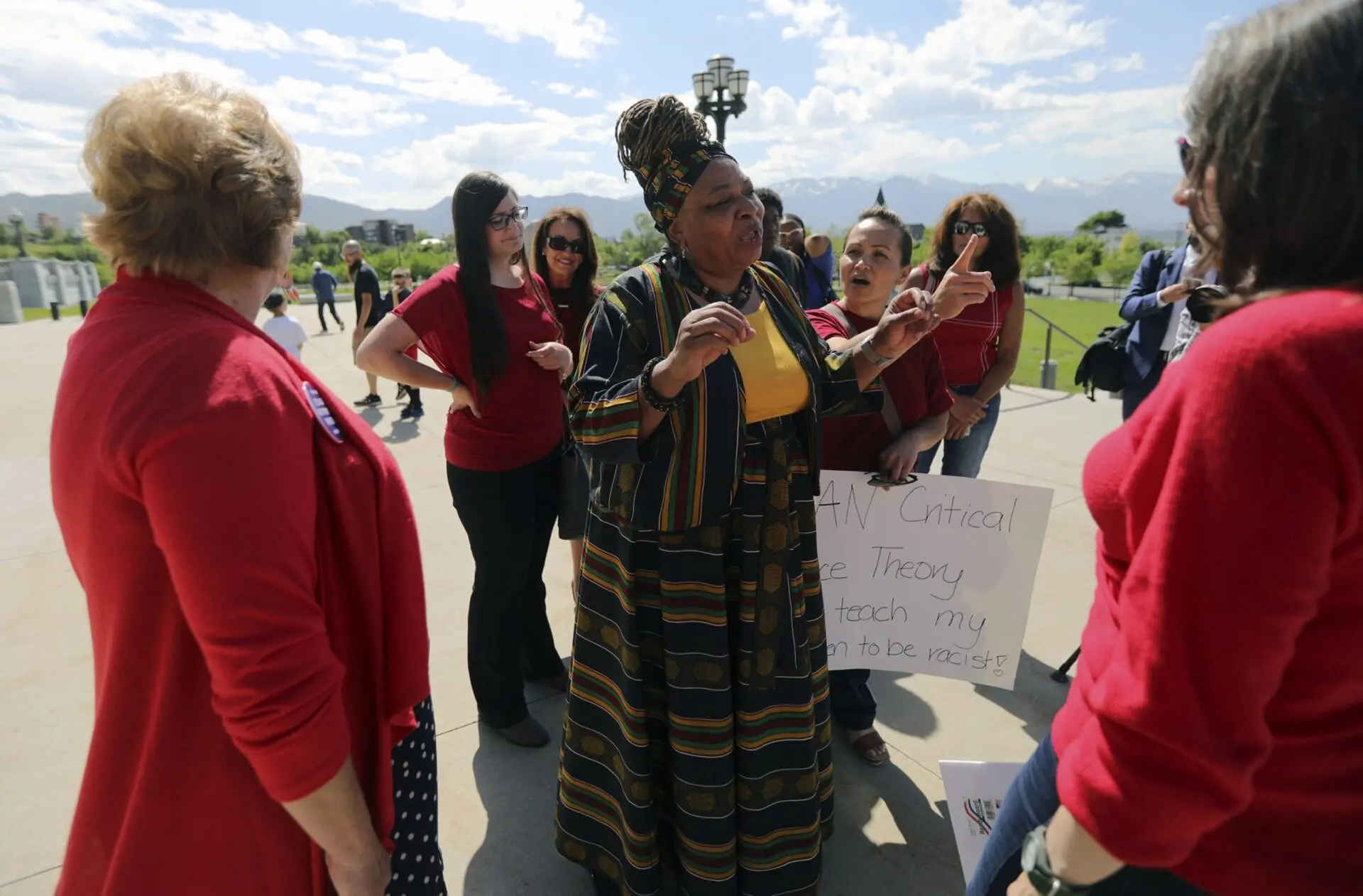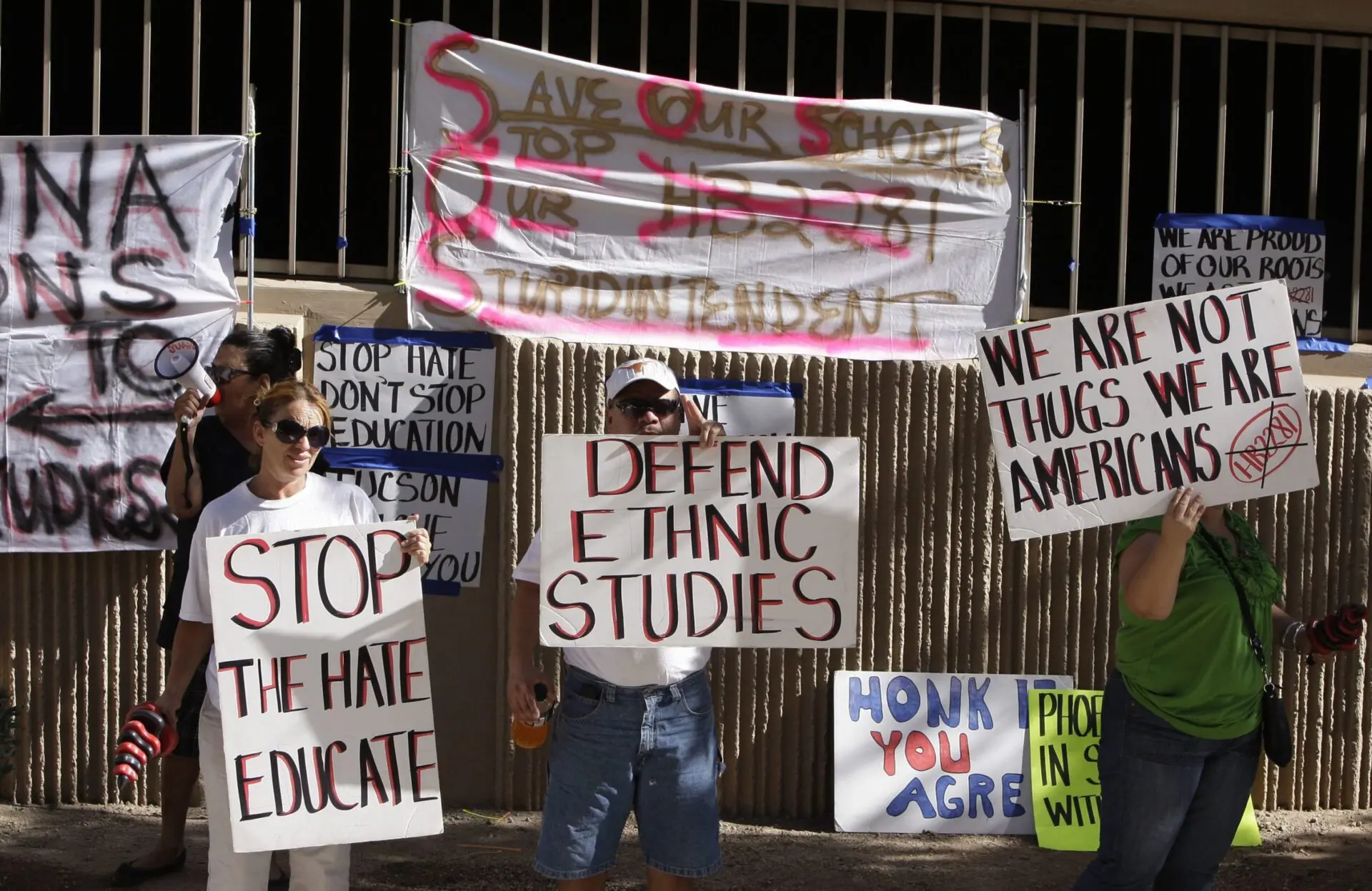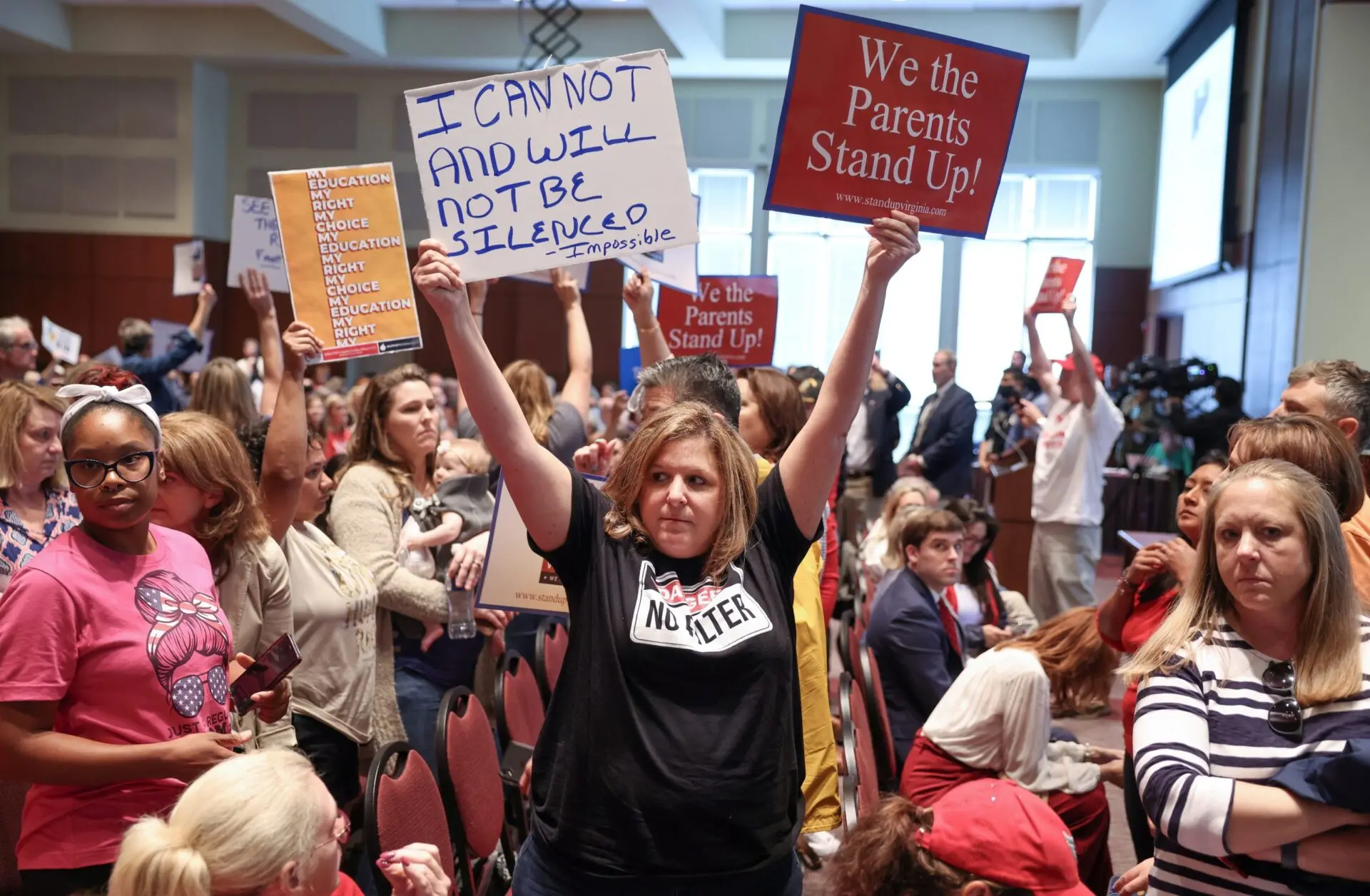Last week, Florida lawmakers sent to Governor Ron DeSantis’ desk four censorious bills related to K-12 and higher education. Two of the bills are educational gag orders, the term PEN America coined for bills that regulate whether and how educators may discuss certain subjects and ideas. The other two bills propose new methods to monitor and regulate instruction. In this second set of bills, the threat of censorship lies beneath the surface, but is no less potent.
These bills have been the subject of much public commentary, including an unfortunate amount of misinformation. To cut through the confusion, PEN America explains below the salient features of each bill and why they have become controversial.
Together, these four bills threaten the freedom of Floridians to read, learn, and teach. Some of their provisions violate the US Constitution. Others do not, but are objectionable for other reasons. All of these bills are incompatible with a free, open, and tolerant society. Gov. DeSantis is expected to sign all four bills into law– an unfortunate reality for K-12 teachers, university faculty, and students in Florida, as well as anyone else who believes that the right to read, learn and teach must be upheld.
HB 1557 (aka the “Parental Rights in Education Act”)
Though its official title is the “Parental Rights in Education Act,” critics have dubbed HB 1557 the “Don’t Say Gay” bill, a term it deserves owing to one of its provisions:
“Classroom instruction by school personnel or third parties on sexual orientation or gender identity may not occur in kindergarten through grade 3 or in a manner that is not age-appropriate or developmentally appropriate for students in accordance with state standards.”
This bill has generated enormous public controversy and protest, particularly with respect to two key points. The first concerns the meaning of “sexual orientation or gender identity.” What does this phrase mean in the bill’s context?
Supporters of the bill have argued that this phrase essentially just means “sex-stuff.” At any rate, that is the term offered by Max Eden of the American Enterprise Institute, a vocal supporter of the bill who believes that critics are making a mountain out of a molehill. Manhattan Institute senior fellow Chris Rufo (best known for his crusade to ban “Critical Race Theory” from classrooms) has heralded the bill as a blow against “state-sanctioned child sexualization.” And even Gov. DeSantis insists that HB 1557 would simply prohibit “sexual instruction.”
These interpretations are wrong. The bill does not prohibit instruction on sex, sexualization, or “sex-stuff,” but rather expicitly targets “sexual orientation” and “gender identity,” which are a separate set of concepts. This distinction is vital. For instance, there is nothing in the legislative text to prevent a teacher from describing to first graders the act of masturbation, human genitalia, or potentially even sexual intercourse. However, teachers might well be prohibited from reading a book about an LGBTQ+ character.
This is clearly the bill’s intent. How do we know? First, because its sponsors have told us so. Republican State Sen. Dennis Baxley, who sponsored the bill in the Florida senate, explicitly confirmed that HB 1557 was designed to keep assignments with details like “Sally has two moms or Johnny has two dads” out of the classroom. And second, because every time somebody offered alternative language, the bill’s supporters shot them down. For instance, one state senator proposed an amendment to replace the phrase “sexual orientation or gender identity” with “human sexuality or sexual activity.” Sen. Baxley rejected his proposal, explaining that such a change would “significantly gut” the bill’s intent.
The second point of confusion around HB 1557 concerns its scope – that is, the school grades to which it applies. Under the bill, no instruction on sexual orientation or gender identity may occur in grades K-3. The ban for these grade levels is absolute. For all higher grades, such instruction may occur, but only if it is delivered in an “age-appropriate” or “developmentally appropriate” manner, and only “in accordance with state standards.”
The terms “age-appropriate” and “developmentally appropriate” are vague, but not unusually so. They appear frequently in the state’s Education Code and are not inherently suspicious. Nevertheless, given that a school district found to have violated HB 1557 is liable for damages in civil court, there will be enormous pressure on teachers to interpret those terms as narrowly as possible to avoid punishment.
The phrase “in accordance with state standards” is even more vague. Florida’s education statutes contain many standards that might be relevant to these topics. However, one standard is perhaps of special significance. Under existing state law, any instruction on human sexuality must emphasize “the benefits of monogamous heterosexual marriage.” When coupled with HB 1557, Florida teachers may find it extremely difficult to discuss same-sex relationships in a way that does not expose them to civil liability.
HB 1557 was passed by the state legislature on March 8.
HB 7 (aka the “Individual Freedom Act”)
The second controversial education bill in Florida is HB 7. This bill is much longer than HB 1557 and considerably more complex. However, at its core, it makes three distinct changes to existing law.
First, it prohibits public and private employers from “[s]ubjecting any individual, as a condition of employment, membership, certification, licensing, credentialing, or passing an examination, to training, instruction, or any other required activity that espouses, promotes, advances, inculcates, or compels such individual to believe” certain ideas. This includes the idea that “members of one race, color, sex, or national origin cannot and should not attempt to treat others without respect to race, color, sex, or national origin,” and “an individual, by virtue of his or her race, color, sex, or national origin, should be discriminated against or receive adverse treatment to achieve diversity, equity, or inclusion.” As an amendment to the state’s Civil Rights code, violators would be subject to civil penalties.
Second, the bill prohibits educators from subjecting “any student or employee to training or instruction that espouses, promotes, advances, inculcates, or compels such student or employee to believe” those same ideas. There has been a great deal of misreporting in the media on this point, with some journalists seemingly under the impression that HB 7 would only apply to K-12 schools. This is incorrect. The legislative text makes clear that it would apply to public K-12 as well as colleges and universities. The relevant section of the bill (starting at Line 222) amends a chapter of Florida statute dealing with K-20 education, which includes higher education. This point was confirmed by one of the bill’s sponsors last week during senate hearings (discussion of HB 7 begins at the 2:24:00 mark).
Note that by prohibiting the espousal, promotion, or advancement of certain ideas by public university faculty, HB 7 is almost certainly unconstitutional. The Foundation for Individual Rights in Education has already explained this to legislators directly, pleading in advance of the final vote for them to amend the text. Unfortunately, this plea was ignored.
Lastly, in a section pertaining solely to public K-12 instruction, the bill makes the following ambiguous declaration:
“The Legislature acknowledges the fundamental truth that all persons are equal before the law and have inalienable rights. Accordingly, instruction and supporting materials on the topics enumerated in this section must be consistent with the following principles of individual freedom.”
The bill then goes on to list those principles, which mostly reject the ideas about race and sex prohibited elsewhere in the text. However, the various lists of ideas and principles are not identical, they refer to different demographic groups, and it is unclear what the term “consistent with” means in this context. As a result, teachers and school administrators will likely find this section of the bill very difficult to interpret.
HB 7 was passed by the state legislature on March 10.
SB 7044
SB 7044 applies to public colleges and universities and contains three provisions salient to free speech and academic freedom. First, it would permit university Boards of Governors to subject their faculty to post-tenure review. These reviews would be held every five years and would include, at a minimum, an evaluation of the faculty member’s performance, plans for improvement, and consequences for underperformance.
The intent behind this provision is unclear. Post-tenure review is already mandatory at many, if not all, public colleges and universities in Florida. However, under existing policy, tenured faculty at Florida universities are evaluated by their peers on the basis of teaching performance, research contributions, and service to the university. Under SB 7044, the nature and consequence of these reviews would be entirely at the discretion of members of the Boards of Governors. These members are political appointees selected by the governor, leading some faculty to fear that post-tenure review could be used to punish professors for their research, teaching, or public commentary.
Second, the bill would impose additional requirements concerning public information about instructional materials. Under existing statute in Florida, public colleges and universities are already required to post online a list of required and recommended textbooks or instructional materials for nearly every course they offer. This list must be made available no less than 45 days prior to the start of the course and must contain detailed bibliographic information (including author(s), title, ISBN, publisher, edition, and copyright date). To these existing requirements, SB 7044 mandates that the lists be searchable by course subject, course number, course title, name of instructor, and the title and author of each textbook or instructional material. Moreover, the lists must be accessible for five years thereafter and be downloadable by current and prospective students.
Critics charge that these provisions would facilitate the tracking and monitoring of faculty instruction, and that they are designed to aid activists on the hunt for “Marxist professors” and “Critical Race Theorists.” Given recent legislation in the state, this fear is not unreasonable.
Finally, the bill would require public universities to seek accreditation from a different accrediting agency every five years. It would also permit a university that believes it has been “negatively impacted” by an accreditor’s “retaliatory action” to pursue legal action. In other words, if a university suffers some financial loss because of an accrediting agency’s decision, that university would be permitted to sue the agency in court.
The motivation behind this last provision is not difficult to understand. Last October, news broke that senior administrators at the University of Florida had blocked multiple faculty members from testifying as expert witnesses in cases deemed “adverse to the university’s interests as a state of Florida institution.” In response, the Southern Association of Colleges and Schools Commission on Colleges (SACSCOC), which currently provides accreditation to the University of Florida system, launched an investigation to determine whether this act violated the agency’s standards on academic freedom. Critics have suggested that SB 7044 might be used to intimidate the SACSCOC into exonerating the university.
The other major problem with this provision is its sheer impracticality. According to the Council of Higher Education Accreditation, universities would be forced to maintain standards for two separate accreditors at the same time. They would also have to complete a new and time-consuming application for accreditation each cycle, rather than simply submit a more straightforward application for renewal. And as Florida Atlantic University English professor Andrew Gothard points out, there is no guarantee that another accreditor would even agree to work with Florida universities, given the potential that the bill creates for a lawsuit.
SB 7044 was passed by the state legislature on March 10.
HB 1467
The final bill is HB 1467, which modifies laws governing the selection and discontinuance of instructional materials in public school curricula and libraries. Under existing statute in Florida, school boards must post online a list, organized by grade level, of all instructional materials purchased by districts for use. Parents and general members of the public are able to review these and other materials made available to students, and if they wish, may lodge a formal objection over their content. They are also able to request to review specific materials held in school libraries and file petitions for them to be removed.
However, HB 1467 would layer on new obligations. If signed into law, it would require that these instructional materials be presented “in a searchable format” on district websites, and that elementary schools similarly list in a searchable manner all materials held in their libraries. Should any parent or member of the public object to an instructional material, the district school boards would also be required to formally report that objection to the Commissioner of Education as part of an annual report. The Department of Education would then publish and regularly update a list of these objections for dissemination across the state. Every school district in Florida would be informed which instructional materials received an objection, the grounds for that objection, the grade levels implicated, and how the objection was ultimately resolved.
What is this all about? According to State Sen.Joe Gruters, who sponsored HB 1467 , the bill is simply an attempt to make the process for selecting instructional materials “completely transparent and open to the public.” But it is difficult to divorce the legislation from its larger political context. There is a concerted campaign underway across the country to ban books and instructional materials containing “objectionable” content. Often, that content amounts to little more than an acknowledgment of LGBTQ+ identities or the existence of racism or sexism.
The purpose of HB 1467 is to facilitate that campaign. By creating a centralized list of every objection leveled against a book, film, article, handout, or instructional software program somewhere in the state, school districts will be under enormous pressure to skirt all controversy and adopt only the safest, most anodyne materials possible. This may be a good strategy for avoiding controversy, but it is no way to educate a child. And if recent trends are any indication, first on the chopping block will be materials related to LGBTQ+ identities, sexuality, diversity, and racism.
HB 1467 was passed by the state legislature on March 10.
This update from PEN America was compiled by Jeffrey Sachs, Jonathan Friedman, and Jeremy C. Young.
For further information, contact: Suzanne Trimel, communications and media consultant, STrimel@PEN.org
Sign Up for Updates on Educational Gag Orders
To receive further updates on educational gag orders and censorious legislative efforts against schools and higher education nationwide, sign up below.







